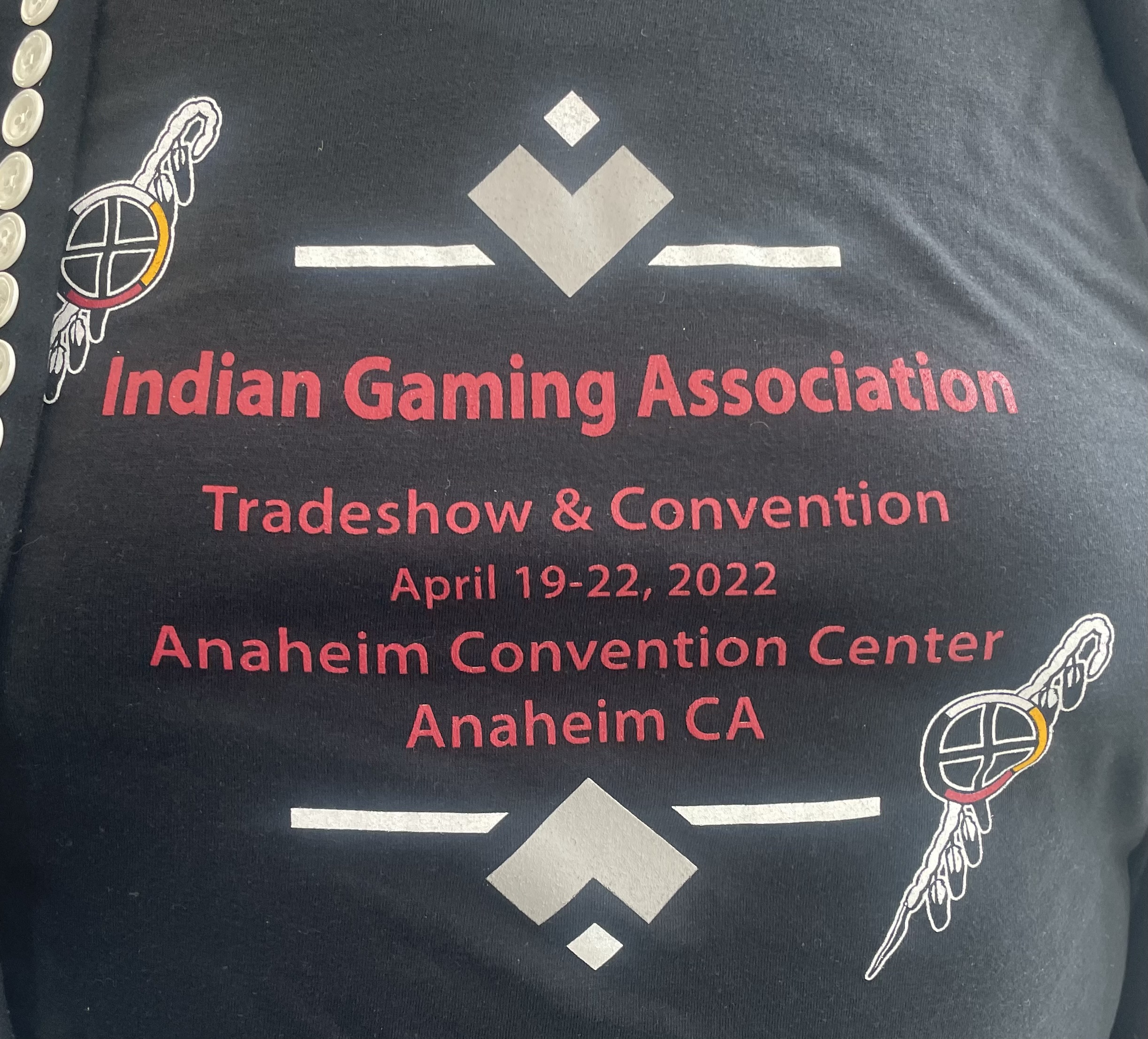
- Details
- By Levi Rickert
ANAHEIM, Calif. — The largest Indian gaming organization in the country decided to drop “National” from its title because the “NIGA” acronym was considered offensive if misinterpreted or mispronounced.
A name change was announced at the National Indian Gaming Association’s 2022 Tradeshow and Convention at the annual membership meeting in Anaheim, Calf. on Wednesday.
The new name of the organization is now the Indian Gaming Association (IGA). Established in 1985 as a non-profit organization, the board of directors approved the name change last year and has been working on all legal matters related to changing the name.
“This has been in the works for a long time. In the old days, people put together this amazing organization and will live with a lot of energy. The acronym just was not comfortable in the world we live in,” Ernie Stevens, Jr., chairman and spokesperson of the IGA said to Native News Online.
“People may misinterpret or even mispronounce our old acronym. We view it as a housekeeping item we wanted to clear up. We have never mispronounced our old acronym, but we wanted to clear it up,” Stevens continued.
IGA’s tradeshow and convention kicked off on Tuesday at the Anaheim Convention Center. The annual convention attracts over 5,000 tribal casino administrators and staff. and those seeing to do business with tribal gaming facilities.
IGA is headquartered in Washington, D.C. and has over 250 tribes as members representing tribal gaming casinos and resorts across the United States.
The tradeshow and convention ends on Friday.
More Stories Like This
Native News Weekly (August 25, 2024): D.C. BriefsUS Presidents in Their Own Words Concerning American Indians
Native News Weekly (December 14, 2025): D.C. Briefs
Wounded Knee Massacre Site Protection Bill Passes Congress
Two Murdered on Colville Indian Reservation
Help us defend tribal sovereignty.
At Native News Online, our mission is rooted in telling the stories that strengthen sovereignty and uplift Indigenous voices — not just at year’s end, but every single day.
Because of your generosity last year, we were able to keep our reporters on the ground in tribal communities, at national gatherings and in the halls of Congress — covering the issues that matter most to Indian Country: sovereignty, culture, education, health and economic opportunity.
That support sustained us through a tough year in 2025. Now, as we look to the year ahead, we need your help right now to ensure warrior journalism remains strong — reporting that defends tribal sovereignty, amplifies Native truth, and holds power accountable.
 The stakes couldn't be higher. Your support keeps Native voices heard, Native stories told and Native sovereignty defended.
The stakes couldn't be higher. Your support keeps Native voices heard, Native stories told and Native sovereignty defended.
Stand with Warrior Journalism today.
Levi Rickert (Potawatomi), Editor & Publisher


